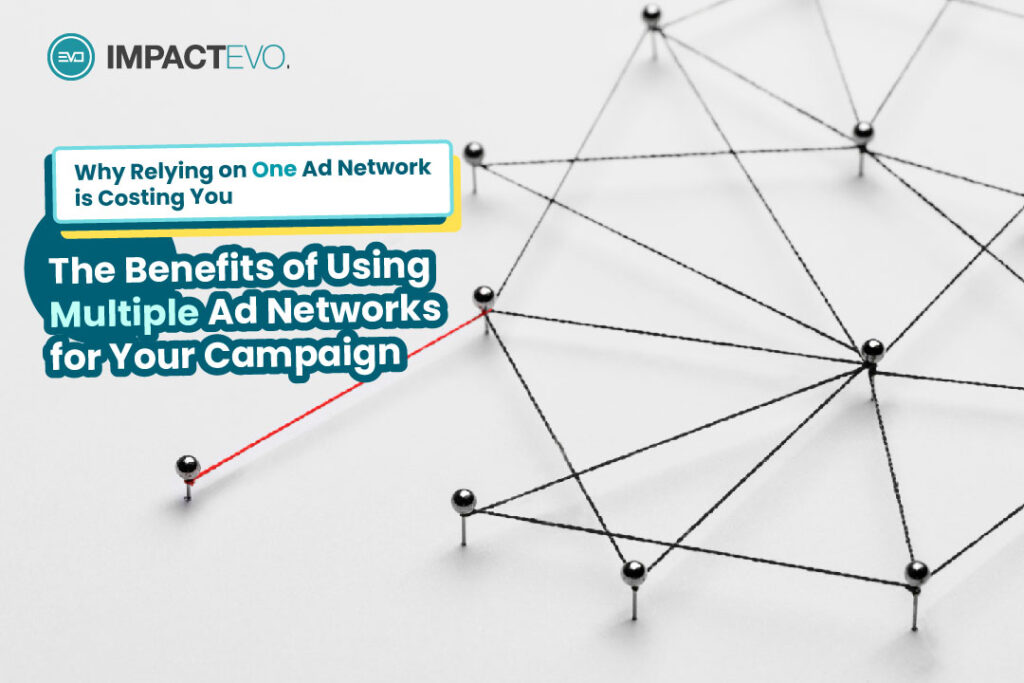In the world of digital advertising, sticking to a single ad network might seem like the simplest approach, but it could be limiting your campaign’s potential. Diversifying across multiple ad networks can help you reach new audiences, increase ROI, and optimize performance. Here’s why using multiple ad networks is a game-changer for your advertising campaigns.
1. Broader Audience Reach
Why It Matters:
Every ad network has its unique user base and reach. By leveraging multiple networks, you can connect with audiences that might not be accessible through just one platform.
How It Works:
- Google Display Network: Reach users across millions of websites and apps.
- Facebook Audience Network: Target social media users on Facebook and Instagram.
- Native Ad Networks: Engage users with ads that blend seamlessly into content.
???? Pro Tip: Use complementary networks to cover all touchpoints of your customer journey.
2. Diversified Campaign Performance
Why It Matters:
If one ad network underperforms, others can help balance your results and ensure consistent ROI.
How It Works:
- Test campaigns on different networks to identify which platforms deliver the best engagement and conversions.
- Use performance insights to allocate budgets effectively across networks.
???? Pro Tip: Track each network’s performance separately using tools like Google Analytics or HubSpot.
3. Reduced Dependence on a Single Platform
Why It Matters:
Relying on one ad network makes your campaign vulnerable to platform-specific changes, such as algorithm updates or policy changes.
How It Works:
- Spread your ad spend across multiple networks to minimize risks.
- Maintain campaign stability even if one network experiences disruptions.
???? Pro Tip: Always stay updated on ad network policies and trends to avoid surprises.
4. Enhanced Targeting Capabilities
Why It Matters:
Different ad networks offer unique targeting options that can improve campaign precision.
How It Works:
- Use Google Ads for intent-based targeting with keywords.
- Leverage Facebook for interest-based targeting using demographic and behavioral data.
- Explore programmatic ad networks for advanced audience segmentation.
???? Pro Tip: Combine first-party and third-party data across networks for a comprehensive targeting strategy.
5. Optimized Ad Formats
Why It Matters:
Each ad network supports specific formats, and using multiple networks allows you to diversify your creative approach.
Examples of Formats:
- Display Ads: Static or animated banners.
- Video Ads: Ideal for platforms like YouTube or TikTok.
- Native Ads: Blends seamlessly with website content on Taboola or Outbrain.
???? Pro Tip: Test different ad formats on each network to see what resonates best with your audience.
6. Competitive Advantage
Why It Matters:
By expanding your presence across multiple ad networks, you stay ahead of competitors who might only be using one or two platforms.
How It Works:
- Reach users on niche platforms your competitors might be ignoring.
- Use cross-platform campaigns to dominate your target market’s attention.
???? Pro Tip: Analyze competitor activity to identify opportunities for diversification.
7. Improved Cost Efficiency
Why It Matters:
Ad costs vary by platform, and spreading your budget across multiple networks can help you find the most cost-effective options.
How It Works:
- Use lower-cost networks for awareness campaigns while reserving high-performing networks for conversions.
- Take advantage of real-time bidding (RTB) to optimize costs on programmatic platforms.
???? Pro Tip: Start with small budgets on new networks and scale based on performance.
8. Comprehensive Insights and Analytics
Why It Matters:
Accessing performance data from multiple networks provides a more complete picture of your audience’s behavior.
How It Works:
- Compare performance metrics like CTR, conversion rate, and ROI across networks.
- Use these insights to refine your targeting and creatives.
???? Pro Tip: Integrate data from all networks into a centralized analytics platform for easier tracking.
How to Effectively Manage Multiple Ad Networks
1. Set Clear Goals
Define what you want to achieve on each platform, such as awareness, engagement, or conversions.
2. Use an Ad Management Tool
Platforms like AdEspresso or HubSpot simplify managing campaigns across multiple networks.
3. Regularly Monitor Performance
Track key metrics on each network and reallocate budgets to maximize ROI.
4. Test and Optimize
Continuously experiment with targeting, creatives, and formats on each platform to find what works best.
???? Pro Tip: Schedule weekly reviews to stay on top of campaign performance.
Conclusion
Using multiple ad networks is a powerful way to expand your reach, improve targeting, and maximize your ROI. By diversifying your campaigns across platforms, you can mitigate risks, optimize performance, and stay competitive in a dynamic digital landscape.
Ready to take your advertising strategy to the next level? Contact Impact Evo for expert guidance on managing campaigns across multiple ad networks!




